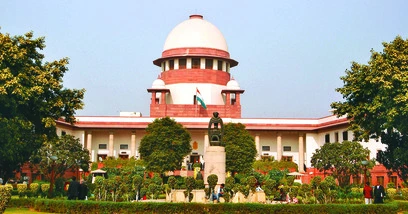The Supreme Court on Friday sought the response of the Gujarat government on a petition filed by self-styled godman Asaram Bapu seeking the suspension of the life imprisonment sentence awarded to him by a trial court in a rape case.
However, the Bench of Justice MM Sundresh and Justice Aravind Kumar made it clear that it would only examine medical reasons to allow Asaram’s interim release from jail.
The top court of the country granted three-week time to the State of Gujarat to file its response.
Appearing for Asaram, Senior Advocate Dama Seshadri Naidu contended that the godman was suffering from serious medical ailments, warranting his interim release from jail.
Noting that Asaram had multiple blockages, the Counsel apprised the Apex Court that doctors had advised the convict to remain in temperature-controlled rooms during winters, else he would perish.
The Bench noted that Asaram had earlier refused treatment in the want of his choice of hospital.
Senior Advocate Naidu contended that since Asaram could not go for a bypass or allopathic treatment, he wanted an Ayurvedic treatment for his ailments.
In January last year, a sessions court in Gandhinagar had convicted Asaram under various provisions of the Indian Penal Code (IPC) in a 2013 incident, for repeatedly raping a female disciple at a Surat Ashram.
An appeal against this trial court verdict was pending before the Gujarat High Court. Asaram, in the meanwhile, approached the High Court seeking interim release from jail.
In August 2024, the High Court dismissed his petition seeking suspension of life imprisonment sentence. The Bench ruled that no exceptional ground were made out to allow Asaram’s interim release from jail, while his appeal against conviction remained pending.
Asaram challenged this verdict in the Apex Court. Filed through Advocates Rajesh Inamdar and Shashwat Anand, the petition before the Supreme Court contended that Asaram’s conviction was riddled with inconsistencies and relied solely on uncorroborated testimony by the complainant.
The petitioner claimed that there was no medical or independent evidence to support the charges against him. He further submitted that he had been falsely implicated to tarnish his reputation and oust him from his Ashram.


